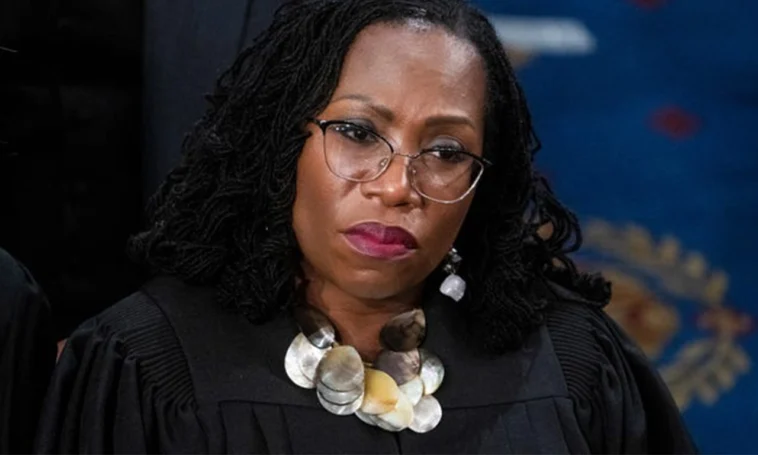Criticism Aimed at Justice Jackson for Expressing Concern about First Amendment hamstringing Government.
Justice Ketanji Brown Jackson’s recent comments on the First Amendment during the Supreme Court hearing of Murthy v. Missouri have ignited a flurry of reactions across social media and among legal commentators. The case itself is a crucial one, revolving around the alleged coordination between the Biden administration and Big Tech to censor certain messages.
Stemming from a lawsuit brought by Republican-led states Missouri and Louisiana, the case accuses high-ranking government officials of colluding with social media companies under the pretext of combating misinformation, leading to the suppression of speech on various topics, including Hunter Biden’s laptop, COVID-19 origins, and the efficacy of face masks. At the heart of the debate lies the interpretation of the First Amendment and its limitations on government action.
During the hearing, Justice Jackson appeared to suggest that there might be circumstances where government intervention to regulate harmful information could be justified. She expressed concerns about the First Amendment “hamstringing” the federal government during critical periods and questioned whether the government should be allowed to encourage or pressure platforms to take down such content. Her remarks immediately went viral, prompting a mix of shock, criticism, and support from social media users and legal experts alike.
Some commentators, like Fox and Friends Weekends co-host Will Cain and California state Rep. Bill Essayli, vehemently disagreed with Justice Jackson’s stance, emphasizing that the First Amendment’s purpose is to limit government power and protect individual rights.
They argued that any attempt by the government to bypass these restrictions would undermine the fundamental principles of free speech enshrined in the Constitution. Reason senior editor Robby Soave echoed similar sentiments, stating that he would be more concerned if the First Amendment did not limit the government’s authority.
On the other hand, some expressed agreement with Justice Jackson’s perspective. Missouri Attorney General Andrew Bailey supported her assertion that the First Amendment is intended to restrict the government’s actions, emphasizing that its purpose is to protect individuals from government overreach.
“My biggest concern is that your view has the First Amendment hamstringing the federal government in significant ways in the most important time periods,” she told the lawyer representing Louisiana, Missouri, and private plaintiffs.
The reaction on social media was equally divided, with some users condemning Justice Jackson’s remarks as “dangerous” and indicative of a lack of understanding of constitutional principles. Podcaster Tim Pool and OutKick writer Ian Miller criticized her for what they perceived as a misunderstanding of the foundational tenets of the United States. Others, however, defended Justice Jackson, attributing her comments to a legitimate concern for public safety and the need to address harmful information online.
The broader implications of this case extend beyond the specific allegations against the Biden administration and Big Tech. It raises questions about the role of government in regulating online discourse, the limits of free speech in the digital age, and the potential consequences of unchecked censorship. The Supreme Court’s decision in Murthy v. Missouri could have far-reaching implications for the future of online communication and the protection of constitutional rights.




Join the Community and Be a Part of the Conversation
You must be logged in or registered to post a comment.